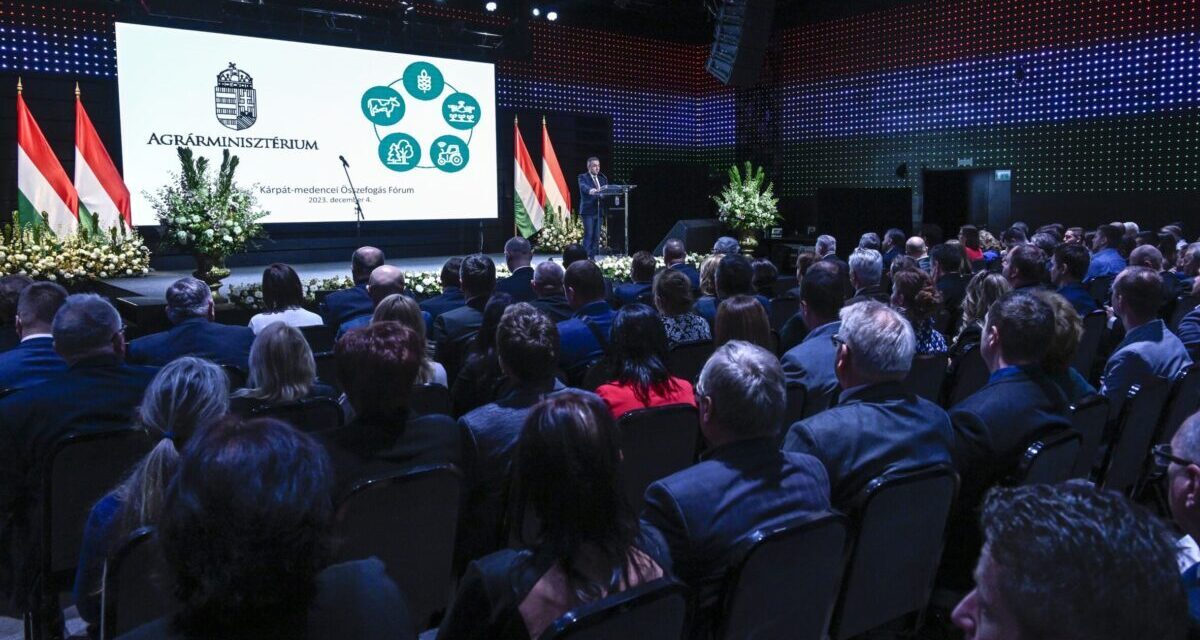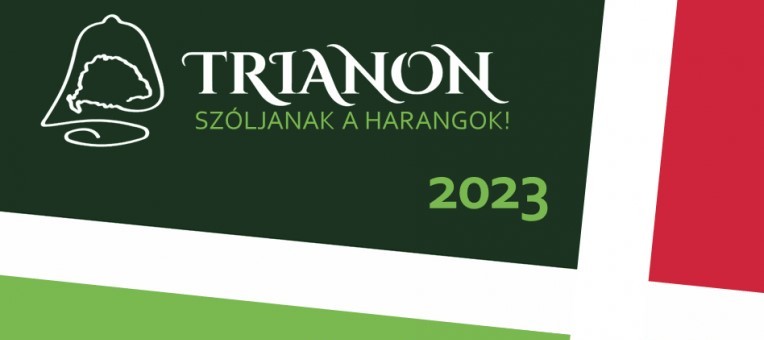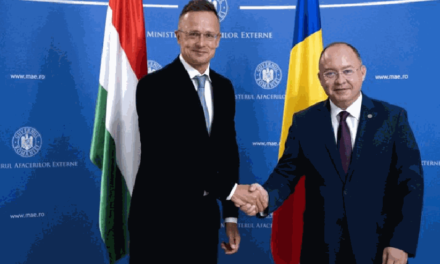The bourgeois government thinks in terms of the nation, and when it says it stands up for the interests of the countryside and farmers, it also thinks of foreign farmers, whom it sees as strategic allies.
The Hungarian government views foreign farmers as strategic allies - emphasized Sándor Farkas, the Parliamentary State Secretary of the Ministry of Agriculture, on Monday in Budapest, at the XII. At the Carpathian Basin Unity Forum, highlighting: the Hungarian nation has suffered more than one "wrinkle" in its life, most recently 19 years ago, when the left-liberal government pitted Hungarians against Hungarians.
Instead of cooperation and unity, the left advocated rejection, betrayed Hungarianness, and tried to undermine national unity. At the same time, from the perspective of 19 years, it can be confidently said that they have held themselves accountable, because with faith and cooperation, life's big wrinkles can be smoothed out, he said.
The event is much more than an annual professional army review. A celebration that shows what a huge driving force the regional cooperation proposed by the Hungarians represents, he said, emphasizing: "we share what we have so that there is more".
He touched on the fact that in 2010 the unification of Hungarians across the border began, and in 2011 it was recorded in the Basic Law that Hungary bears responsibility for the Hungarian communities across the border, who became part of the nation in the sense of public law through naturalization. This was a gesture with which the Hungarian government expressed its faith towards the Hungarians abroad, he pointed out, adding that since then this gesture has been supported by a series of actions, supports and collaborations.
He emphasized: the civilian government thinks in terms of the nation, and when they say they stand up for the interests of the countryside and farmers, they also think of foreign farmers, whom they regard as strategic allies.
He noted: seventy percent of Hungarians abroad live in the countryside and a significant part of them are engaged in agriculture. The goal is for them to be able to thrive in their homeland, produce value, and provide a living for their families.
Sándor Farkas reported on the initiatives strengthening Hungarian-Hungarian relations, mentioning the Carpathian Basin village farmer program as one of the most effective and successful programs. He touched on the program aimed at the renewal of historic wine regions, the strengthening of agricultural vocational training, and the fact that the support of secondary and higher level agricultural education in Hungarian is considered a high priority.
Pál Zsigmond Barna, the Parliamentary State Secretary of the Ministry of European Union Affairs, spoke about the full value of Hungarian-Hungarian cooperation in agriculture.
He said: today is a holiday, they take it for granted that they are together, but it wasn't always like that. He recalled December 5, 2004, which he called the saddest day in modern Hungarian history.
The left wing, under the leadership of Ferenc Gyurcsány, turned against the Hungarian nation, turned Hungarians against Hungarians, and they railed against Hungarians across the border.
Fortunately, this experiment did not lead to results, from 2010 a new chapter began in the history of the Hungarian nation, the Orbán government opened a new dimension in national politics. A policy of support has been developed that they can be justly proud of and behind which there is national unity, he explained.
At the same time, he warned that the same people who attacked the nation still "form" the left today, are now selling the homeland and the nation for dollars. He urged everyone to be vigilant and to tell young people that they must participate in public life and vote so that "the left with sad memories does not return."
The state secretary spoke about the fact that, although not in other areas, the union works well in the field of agriculture, and the resources are coming.
Speaking about the enlargement issues on the agenda, he said: there is a lot of political pressure to admit Ukraine to the European Union, but the Hungarian government's position is that this decision has not been prepared, has not been thought through, and does not have the necessary unity.
He called the accession of Serbia a Hungarian national economic interest and indicated that everything will be done so that it can join the union as soon as possible.
János Árpád Potápi, State Secretary responsible for national policy, emphasized: national policy is not basically implemented in Budapest, it is for the nation as a whole. You have to be present everywhere where Hungarians live, where there are Hungarian communities, he underlined.
In the field of national politics, the state secretary called the building of networks of media, businesses, pediatricians, psychologists, and teachers of particular importance. He touched on the importance of networks in twin-city relations, local governments, the cooperation of historic churches and farmers, the latter representing the largest network in the Carpathian Basin. He pointed out: about 20 percent of the family businesses of Hungarians across the border deal with agriculture.
János Árpád Potápi said: whoever owns the land, owns the homeland, and whoever owns the earth, owns the future. This was not only true a hundred years ago, but is still valid today and will be true in a hundred years, he emphasized.
Everything must be done to keep Hungarian land in Hungarian ownership and to give Hungarian farmers access to as much land as possible, he added.
The State Secretary for National Policy also recalled December 5, 2004, calling it one of the most shameful days in Hungarian history. We all experienced it as a great defeat - he remembered, adding: at the same time, this day was also needed for the national unity to be realized after 2010, which is much stronger than at any time in the last hundred years.
MTI
Cover image: The XII.
Carpathian Basin Solidarity Forum on December 4, 2023. Source: MTI/Zsolt Szigetváry













